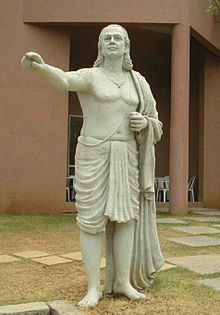517
Appearance
| Millennium: | 1st millennium |
|---|---|
| Centuries: | |
| Decades: | |
| Years: |
| 517 by topic |
|---|
| Leaders |
| Categories |
| Gregorian calendar | 517 DXVII |
| Ab urbe condita | 1270 |
| Assyrian calendar | 5267 |
| Balinese saka calendar | 438–439 |
| Bengali calendar | −77 – −76 |
| Berber calendar | 1467 |
| Buddhist calendar | 1061 |
| Burmese calendar | −121 |
| Byzantine calendar | 6025–6026 |
| Chinese calendar | 丙申年 (Fire Monkey) 3214 or 3007 — to — 丁酉年 (Fire Rooster) 3215 or 3008 |
| Coptic calendar | 233–234 |
| Discordian calendar | 1683 |
| Ethiopian calendar | 509–510 |
| Hebrew calendar | 4277–4278 |
| Hindu calendars | |
| - Vikram Samvat | 573–574 |
| - Shaka Samvat | 438–439 |
| - Kali Yuga | 3617–3618 |
| Holocene calendar | 10517 |
| Iranian calendar | 105 BP – 104 BP |
| Islamic calendar | 108 BH – 107 BH |
| Javanese calendar | 404–405 |
| Julian calendar | 517 DXVII |
| Korean calendar | 2850 |
| Minguo calendar | 1395 before ROC 民前1395年 |
| Nanakshahi calendar | −951 |
| Seleucid era | 828/829 AG |
| Thai solar calendar | 1059–1060 |
| Tibetan calendar | 阳火猴年 (male Fire-Monkey) 643 or 262 or −510 — to — 阴火鸡年 (female Fire-Rooster) 644 or 263 or −509 |

Year 517 (DXVII) was a common year starting on Sunday of the Julian calendar. At the time, it was known as the Year of the Consulship of Agapitus and Paulus among the Romans (or, less frequently, year 1270 Ab urbe condita). The denomination 517 for this year has been used since the early medieval period, when the Anno Domini calendar era became the prevalent method in Europe for naming years.
Events
[edit]By place
[edit]Europe
[edit]- King Sigismund of Burgundy is opposed by his son Sigeric, and has him strangled. Overcome with remorse, he retreats to the monastery that he founded, St. Maurice's Abbey (modern Switzerland).[1]
China
[edit]- Emperor Wu Di of the Liang Dynasty becomes a Buddhist, and introduces the new religion to central China. He demands that sacrifices to imperial ancestors be changed to using dried meat, instead of the traditional animals (goats, pigs and cows).
By topic
[edit]Religion
[edit]- Council of Epaone: Bishops of southern Gaul convene near Epao (present Anneyron) in Burgundy. The synod enacts the first legislation against wooden altars, forbidding the building of any but stone altars with chrism (a mixture of oil and spice).
Science
[edit]- Aryabhata compiles his manual of mathematics and astronomy (approximate date).
Births
[edit]Deaths
[edit]- April 5 – Timothy I, patriarch of Constantinople
- Dioscorus II, Coptic Orthodox patriarch of Alexandria
- Macedonius II, patriarch of Constantinople (approximate date)
References
[edit]- ^ Esders, Stefan; Fox, Yaniv; Hen, Yitzhak; Sarti, Laury (April 4, 2019). East and West in the Early Middle Ages: The Merovingian Kingdoms in Mediterranean Perspective. Cambridge University Press. p. 35. ISBN 978-1-107-18715-3.
